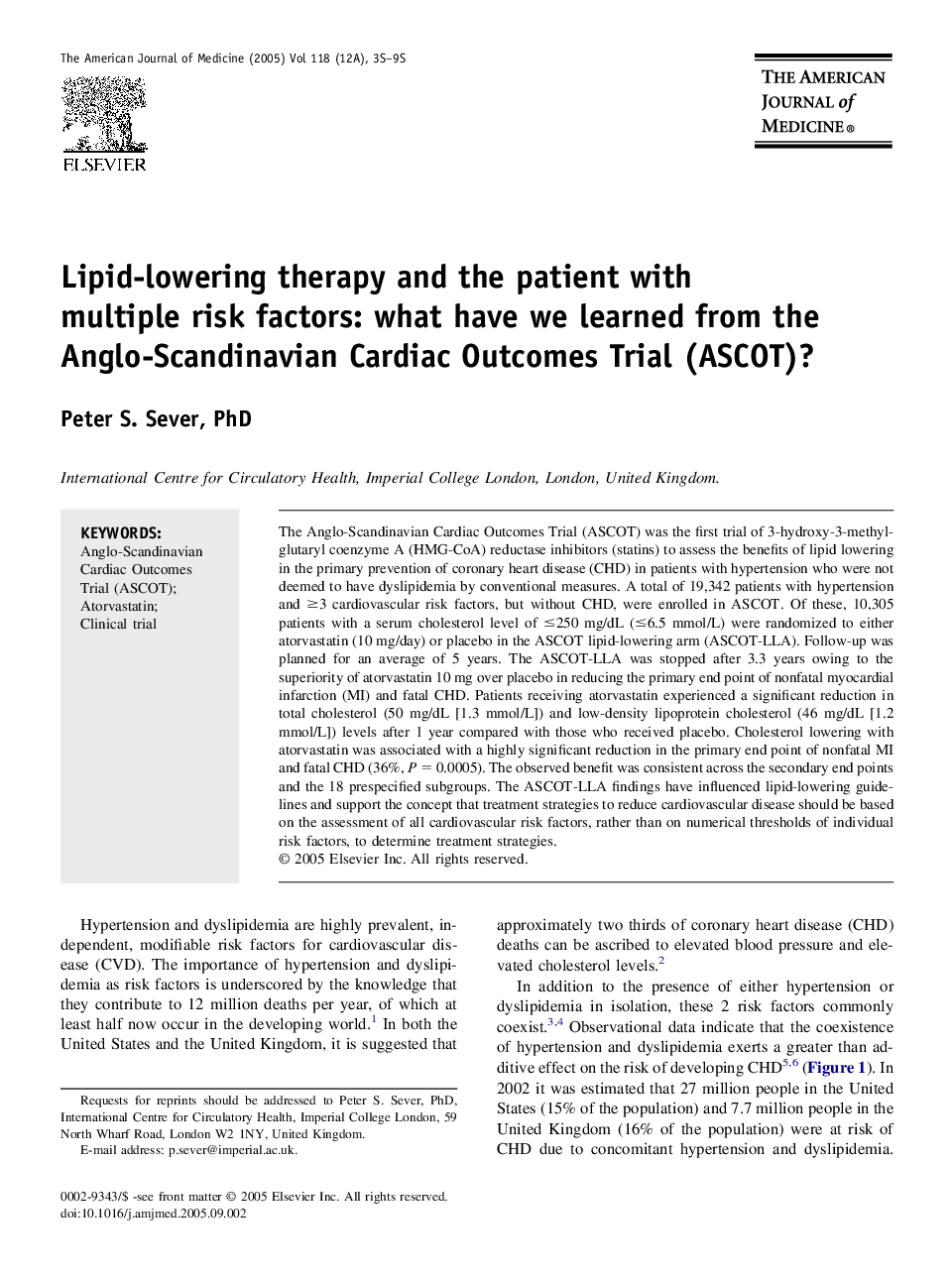| کد مقاله | کد نشریه | سال انتشار | مقاله انگلیسی | نسخه تمام متن |
|---|---|---|---|---|
| 9929237 | 1566292 | 2005 | 7 صفحه PDF | دانلود رایگان |
عنوان انگلیسی مقاله ISI
Lipid-lowering therapy and the patient with multiple risk factors: what have we learned from the Anglo-Scandinavian Cardiac Outcomes Trial (ASCOT)?
دانلود مقاله + سفارش ترجمه
دانلود مقاله ISI انگلیسی
رایگان برای ایرانیان
موضوعات مرتبط
علوم پزشکی و سلامت
پزشکی و دندانپزشکی
پزشکی و دندانپزشکی (عمومی)
پیش نمایش صفحه اول مقاله

چکیده انگلیسی
The Anglo-Scandinavian Cardiac Outcomes Trial (ASCOT) was the first trial of 3-hydroxy-3-methylglutaryl coenzyme A (HMG-CoA) reductase inhibitors (statins) to assess the benefits of lipid lowering in the primary prevention of coronary heart disease (CHD) in patients with hypertension who were not deemed to have dyslipidemia by conventional measures. A total of 19,342 patients with hypertension and â¥3 cardiovascular risk factors, but without CHD, were enrolled in ASCOT. Of these, 10,305 patients with a serum cholesterol level of â¤250 mg/dL (â¤6.5 mmol/L) were randomized to either atorvastatin (10 mg/day) or placebo in the ASCOT lipid-lowering arm (ASCOT-LLA). Follow-up was planned for an average of 5 years. The ASCOT-LLA was stopped after 3.3 years owing to the superiority of atorvastatin 10 mg over placebo in reducing the primary end point of nonfatal myocardial infarction (MI) and fatal CHD. Patients receiving atorvastatin experienced a significant reduction in total cholesterol (50 mg/dL [1.3 mmol/L]) and low-density lipoprotein cholesterol (46 mg/dL [1.2 mmol/L]) levels after 1 year compared with those who received placebo. Cholesterol lowering with atorvastatin was associated with a highly significant reduction in the primary end point of nonfatal MI and fatal CHD (36%, P = 0.0005). The observed benefit was consistent across the secondary end points and the 18 prespecified subgroups. The ASCOT-LLA findings have influenced lipid-lowering guidelines and support the concept that treatment strategies to reduce cardiovascular disease should be based on the assessment of all cardiovascular risk factors, rather than on numerical thresholds of individual risk factors, to determine treatment strategies.
ناشر
Database: Elsevier - ScienceDirect (ساینس دایرکت)
Journal: The American Journal of Medicine - Volume 118, Issue 12, Supplement, December 2005, Pages 3-9
Journal: The American Journal of Medicine - Volume 118, Issue 12, Supplement, December 2005, Pages 3-9
نویسندگان
Peter S. PhD,